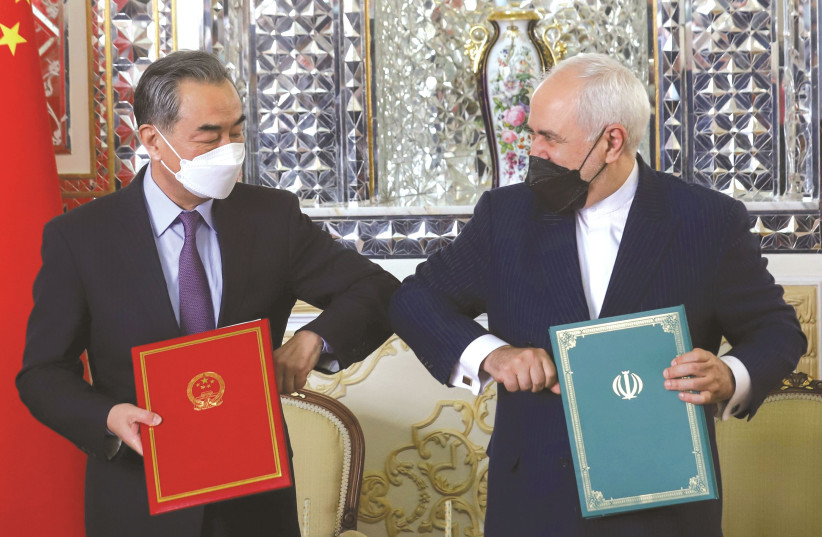In a significant move to enhance its intelligence-gathering capabilities, Iran is actively pursuing partnerships with two Chinese satellite companies, according to a Friday report by The Washington Post citing Western security officials.
The collaboration, primarily involving Iran’s Islamic Revolutionary Guard Corps (IRGC), includes delegation exchanges with Chinese firms specializing in remote-sensing satellite technology. This partnership aims to bolster Iran’s ability to conduct high-resolution surveillance of military targets across Israel and the Middle East, raising concerns among US, European, and Middle Eastern intelligence agencies.
These ties have been strengthened by a 25-year political and economic cooperation pact signed three years ago, which has paved the way for deeper collaboration in various sectors, including military and satellite technology.
The two Chinese companies in question manufacture and operate advanced remote-sensing satellites, which could potentially double the resolution of images currently produced by Iran’s satellites, according to the report. This upgrade would significantly enhance Iran’s ability to monitor US and Israeli military installations as well as those of its Arab rivals.
From Beijing to Sana'a
A confidential assessment viewed by The Washington Post highlights the potential dangers of this collaboration. The report warns that an agreement between Iran and these Chinese companies could provide Tehran with improved targeting capabilities for its ballistic missiles and more effective early warning systems to detect incoming attacks. Furthermore, Iran could share satellite-derived intelligence with its regional allies, such as Yemen’s Houthi rebels and various militias in Syria and Iraq, who have previously targeted US military bases and commercial shipping in the Persian Gulf.

One of the Chinese companies, Chang Guang Satellite Technology Co., based in northeastern China’s Jilin province, has reportedly established a close relationship with Iran. The company produces small, cost-effective “cubesat” satellites equipped with optical systems capable of capturing images with a resolution as fine as 30 centimeters, rivaling the capabilities of the most advanced US and European commercial satellites. In contrast, Iran’s current Khayyam satellite can only produce images with a resolution of about 1 meter, highlighting the significant leap in surveillance capabilities that could result from this partnership.
Historically, China has been a crucial military partner for Iran, although Beijing scaled back its weapons sales to Tehran in the mid-2000s amid international sanctions. However, the relationship has been rekindled in recent years, with China supplying Iran with satellite-based navigation technology in 2015, which improved the accuracy of Iranian missiles and drones. This renewed cooperation under the 2021 agreement includes commitments to joint military training exercises and future developments in fixed-wing aircraft and helicopters.
A Chinese balancing act
Beijing remains cautious about providing direct military aid that could escalate tensions in the Middle East. China’s strategic interests in the region, particularly its economic relationships with Saudi Arabia and the United Arab Emirates, dictate a careful balancing act.
China’s priority is to avoid triggering international sanctions against its companies or contributing to instability that could disrupt vital oil supplies from the Gulf.
Meanwhile, Russia continues to be a key supporter of Iran’s space program, launching multiple Iranian surveillance satellites into orbit in recent years. Moscow’s involvement underscores the geopolitical alignment between Russia and Iran, particularly as Russia grows increasingly reliant on Iranian drones in its conflict with Ukraine. As Tehran’s surveillance capabilities expand through these international partnerships, the balance of power in the Middle East could be further destabilized, raising the stakes for regional security.
